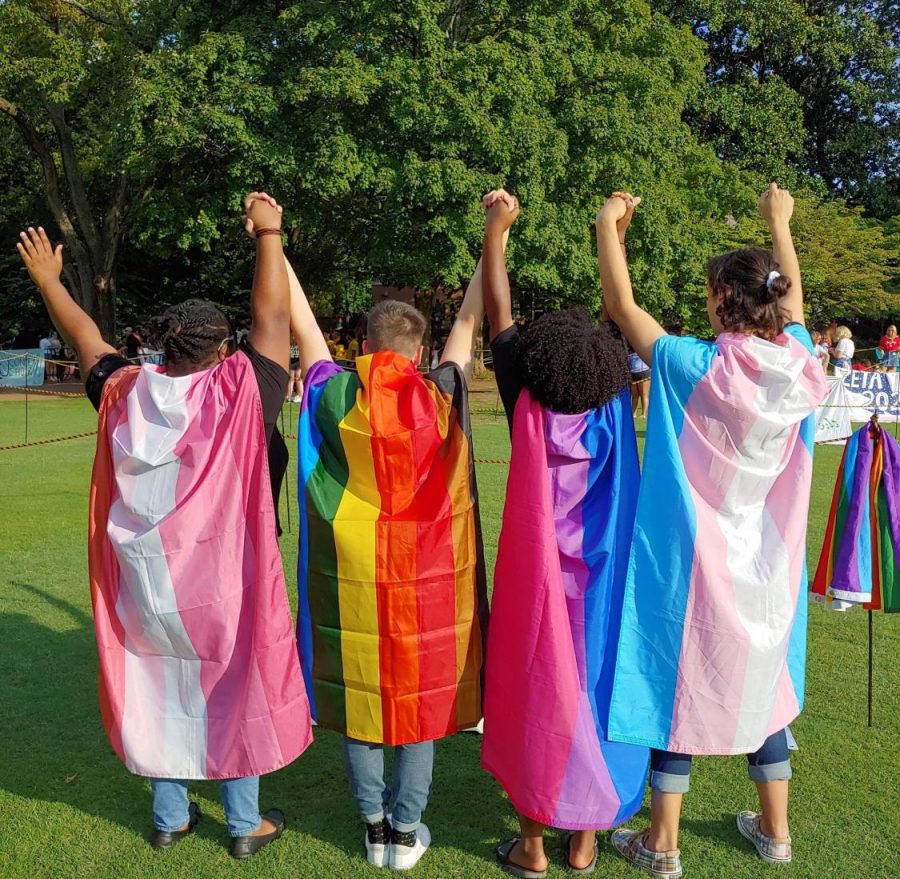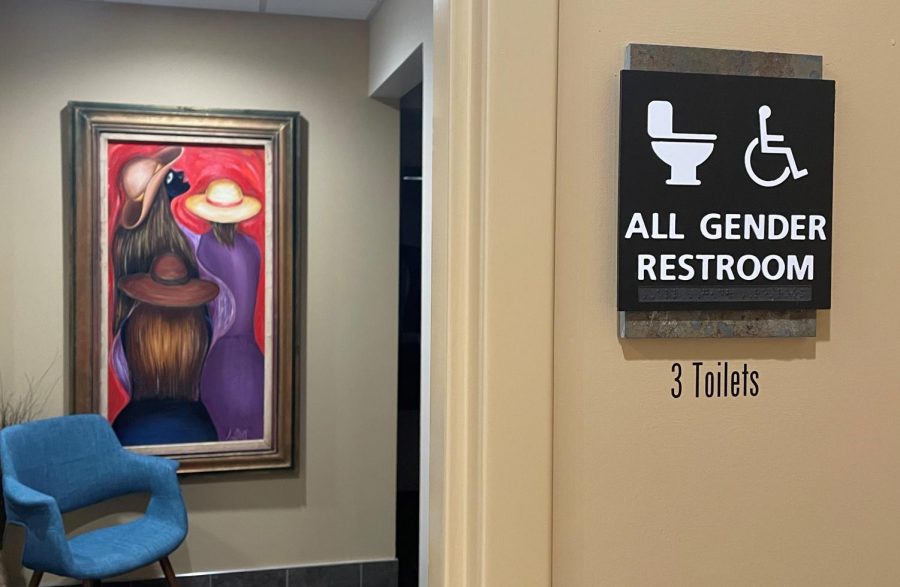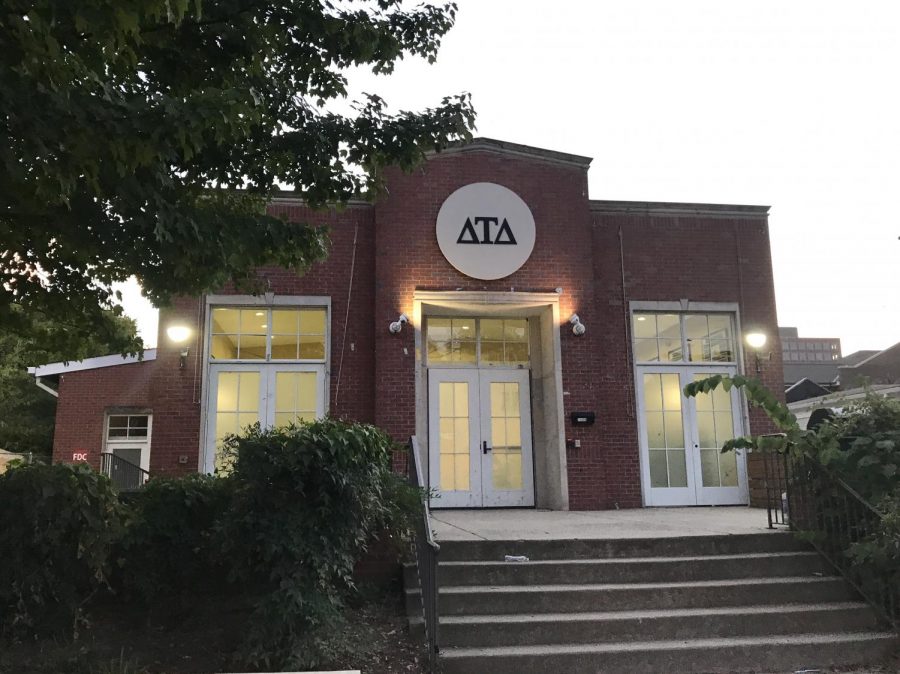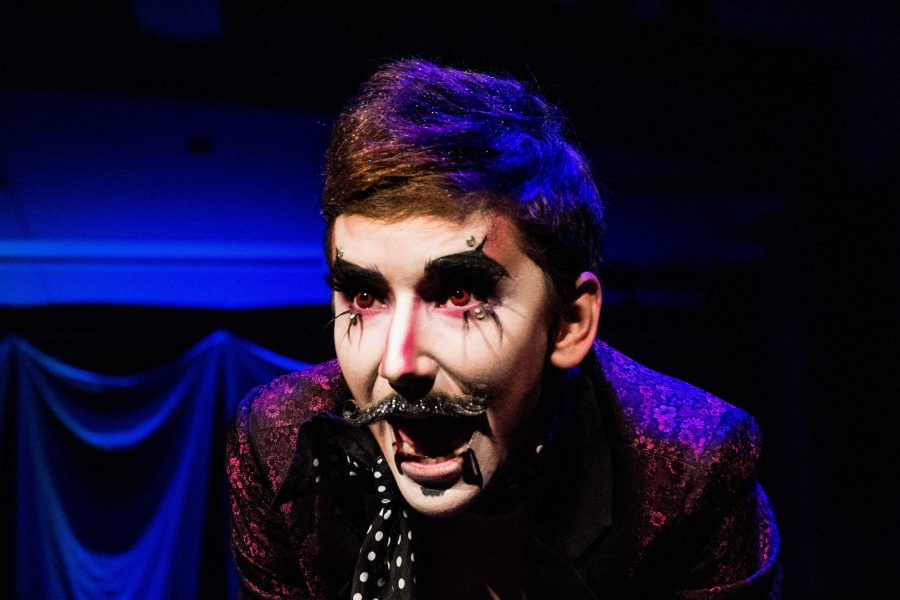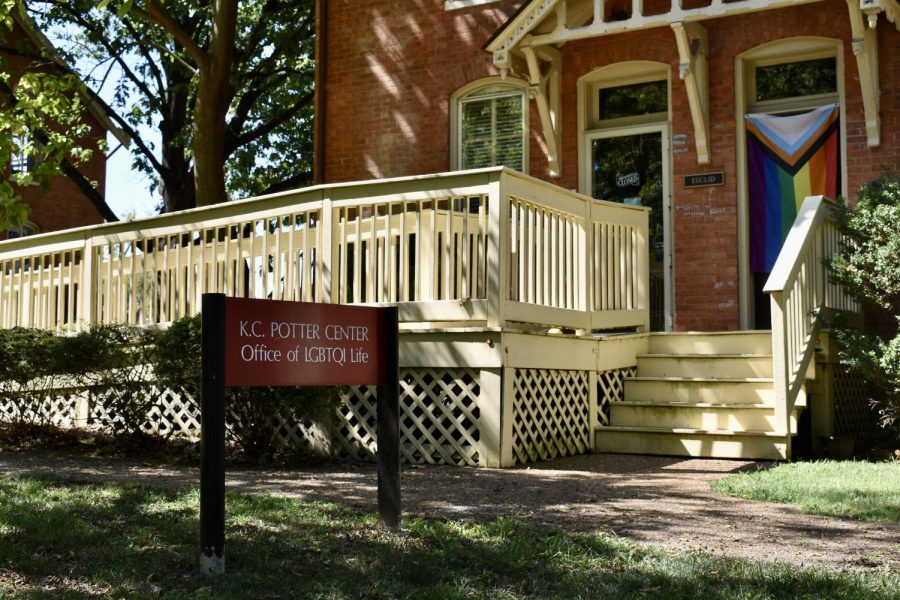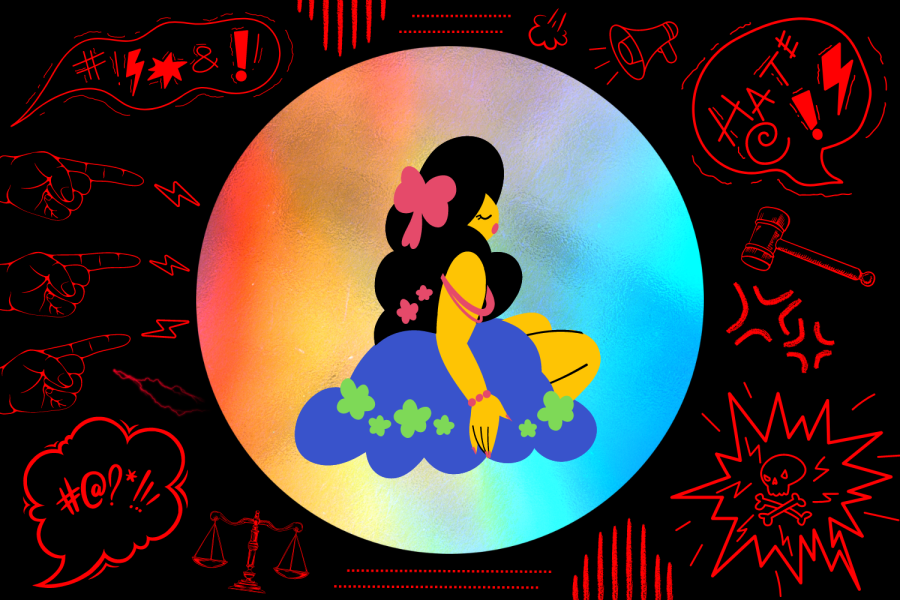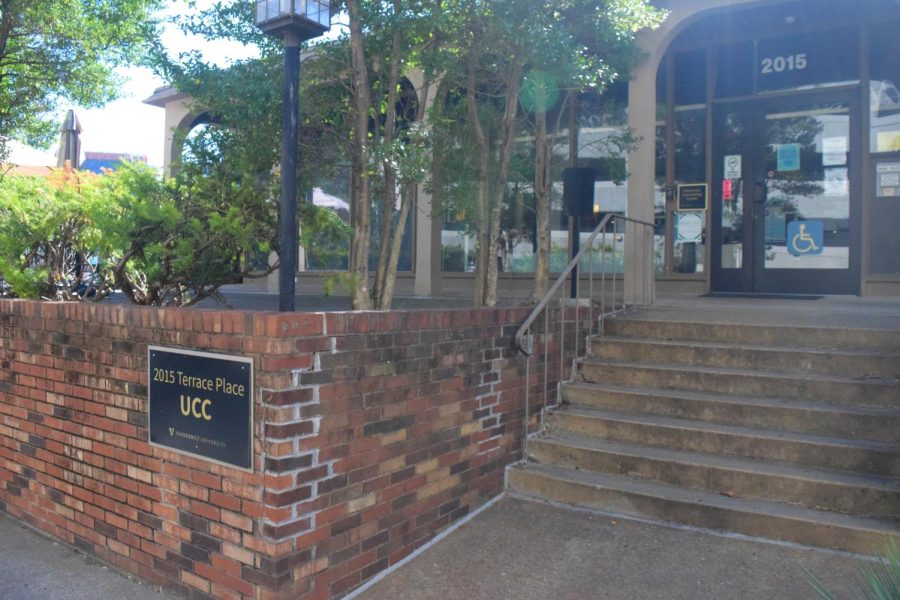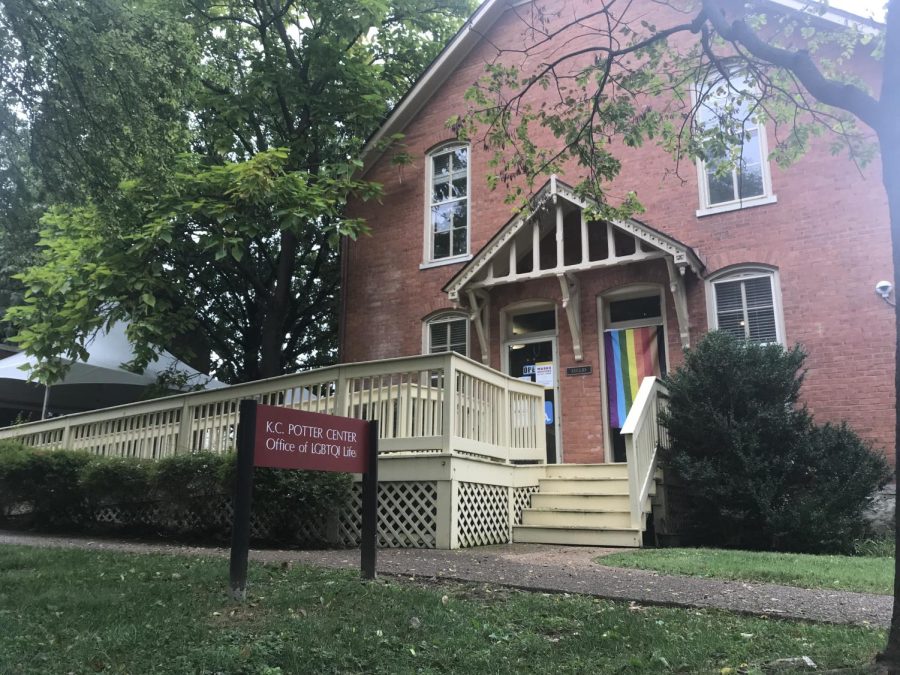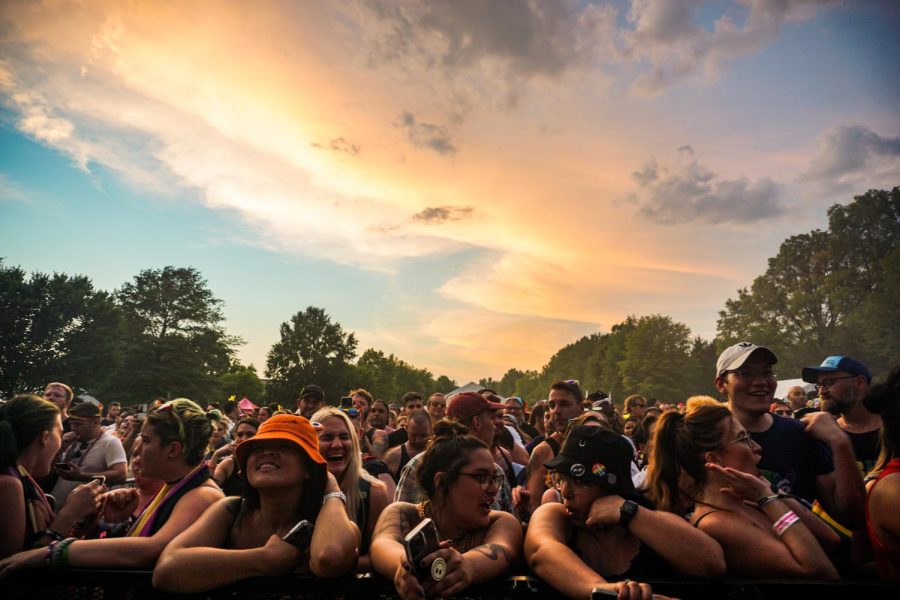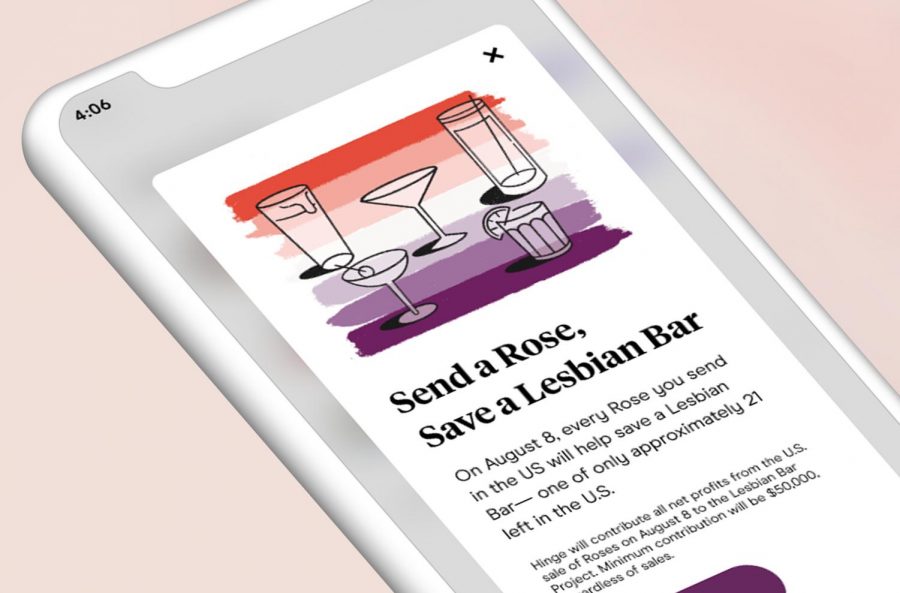*Editors Note: This guest editorial is published under a pseudonym.
I looked in the mirror and smiled sadly. I was wearing my favorite khaki shorts, an obnoxiously rainbow-y shirt and, of course, a flannel. It was my last day on campus. At the end of it, half my wardrobe would be hidden away in The Not-to-Be-Opened-at-My-Parents-House Box. This was the last time I greeted my reflection with a sense of confidence, affirmation and joy.
During my four years at Vanderbilt, I’ve come to truly love our campus. Vanderbilt was the place I first discovered my lesbian identity, and the distance from my parents has meant independence. In Nashville, I’ve had enough freedom to visibly embrace my gender nonconformity, to come out to peers and to take on leadership positions in the LGBTQ+ community.
But living a double life comes with mental and emotional costs, and I’ve hit my limit with the constant burden of anxiety it imposes on me. I planned to come out to my family just before graduation. The distance between us would be a protective factor; my community at Vanderbilt would support me, and my summer job would provide me with financial independence. Whatever their reaction, I was prepared and ready to begin living my life authentically, with dignity and freedom.
Then, the COVID-19 pandemic hit Nashville.
The COVID-19 pandemic has resulted in increased challenges for LGBTQ+ students, and Vanderbilt hasn’t fully recognized or prioritized the needs of our community in their response. Vanderbilt’s repeated messages of “care” and “unity” feel grossly ironic.
I’m privileged to be partially-closeted at home. Many of my peers have come out, often against their will, and have, in turn, lost family support. For many of us, Vanderbilt is our family and our home. When those emails that evicted us from campus housing went out, I wasn’t mourning St. Fratty’s, 4/20 or even Commencement. I was mourning safety, freedom and stability.
The process to request to stay on campus was confusing, disorganized, and panic-inducing. It required me to “out” myself to Vanderbilt Housing and discuss sensitive family matters without any promise of confidentiality. Some were able to stay, but many like myself were coldly rejected.
One rising senior told me that despite her honest and raw testament of facing abuse from her family, Vanderbilt rejected her request to stay. Being one of many students who relied on an on-campus job for income, the pandemic took away her wages. She has resorted to couch surfing and sleeping in her car, a situation that places her at an exceedingly high risk in the pandemic.
It has become clear to me that supporting diverse groups of students is not a priority across campus, but rather, is assumed to be solely the responsibility of identity centers. While Vanderbilt Housing evicted LGBTQ+ students with unsafe homes, the Office of LGBTQI Life scrambled to create a list of supportive faculty and staff members who would be willing to take in displaced students. This is a life-saving solution for some, but not everyone feels safe living with a stranger during such an unpredictable time and this isn’t an adequate long-term solution if dormitories are closed in the fall. The Office of LGBTQI Life does not have the power and funding to solve all of the problems our community is facing alone.
For example, students with financial aid received reduced housing and meal plan reimbursements, and the much-delayed Student Hardship Fund is capped at $500 which barely makes a dent in rent, assuming students are approved. At the best of times, LGBTQ+ people, especially LGBTQ+ people of color, face increased risks of food insecurity, poverty, homelessness and employment discrimination, issues that are likely to be exacerbated by COVID-19.
Additionally, community spaces and other important resources for the LGBTQ+ students are inaccessible for many after the switch to virtual engagement. For example, University Counseling Center services are limited by unforeseen policy implications. Since I am outside of Tennessee, my appointments with my therapist cannot exceed 30 minutes. We are restricted to phone calls, even though I’ve been without cell signal for the past three months. It’s discouraging and disheartening to sit with your phone in your hand for an hour, waiting for the call, only to receive a message that your therapist attempted several times to no avail.
Community spaces such as affinity groups and Lambda have moved online, but many students face barriers such as not having the required technology, poor internet signal, lacking the privacy to safely attend and accessibility concerns for those with disabilities. This is especially worrisome, considering that LGBTQ+ young people are at a higher risk for negative mental health outcomes.
While it isn’t Vanderbilt’s fault in all situations that students cannot access these resources, they haven’t done enough to overcome barriers in areas administration can control. Vanderbilt Housing could have made the process to request to stay more transparent and organized, as well as taken an approach that is trauma informed, aware of LGBTQ+ issues and doesn’t require students to out themselves.
Furthermore, their approach should have recognized that our lives are more complex than either safe or unsafe in order to ensure that fewer students fall between the cracks.
The Office of Student Care Coordination and the University Counseling Center could have worked to increase access to mental health services with licensure policy in mind. For example, students who moved out of Tennessee could have been offered funding to see providers who are licensed in their state of residence. Offices across campus as well as in the academic realm could have worked to increase access to virtual events for students with disabilities, utilizing assistive technology and software. In distributing existing funds for students facing hardship, I would hope that reviewers are aware of the disproportionate economic risks that LGBTQ+ people face.
With the looming threat of staff layoffs and funding cuts, I’m worried about what might happen as the economic crisis pushes Vanderbilt’s commitment to equity, diversity, and inclusion to the sidelines.
So, what can we do to help?
Check on your LGBTQ+ friends. Listen if they want to speak, and ask them how you can support them. Take the time to validate and affirm your peers’ identities, even if it means practicing they/them pronouns for 10 minutes a day until it starts to roll off your tongue.
Hold Vanderbilt accountable to their proclaimed values of equity, diversity and inclusion, especially during the likely possibility of a virtual fall semester. Write to or call those heading our COVID-19 taskforce to demand accessible mental health resources and greater financial support for students. Make them aware of how Vanderbilt Housing has harmed LGBTQ+ students, and demand an approach to housing that doesn’t require a student to out themself or discuss trauma. When planning virtual events for student organizations or even among your friends, challenge yourself to find creative solutions for access barriers, and consult students who face these challenges in your quest to include them. Read more about these issues, and don’t let my privileged voice be the only one you hear.
And for problems for which we have yet to find a solution, the very least we can all do is to listen and acknowledge the harm.
If you’re LGBTQ+ identifying and facing some, all, or even more than the issues I’ve discussed, know that you’re not alone. Your life and voice matters in our community, and there are people who care about you, even if they may be too privileged to understand all that you are facing. Our community has a history of strength and resilience, and your identity is something beautiful, a treasure to take pride in. Now more than ever, our expression, love, community and self-care are radical acts, and I’m proud of us for weathering this storm.











